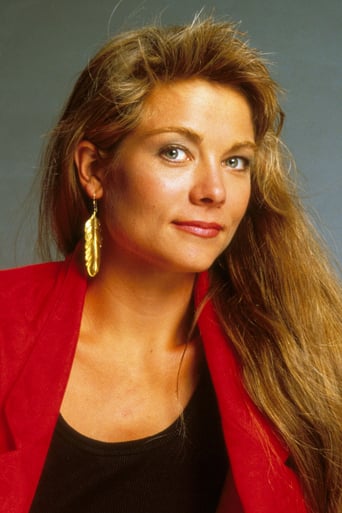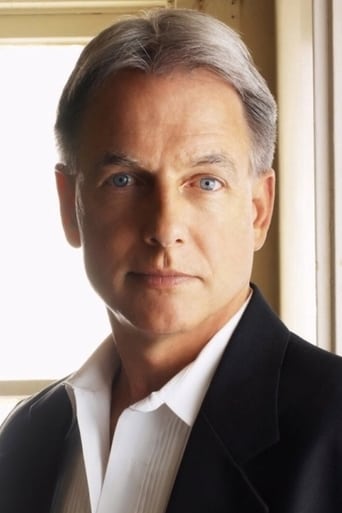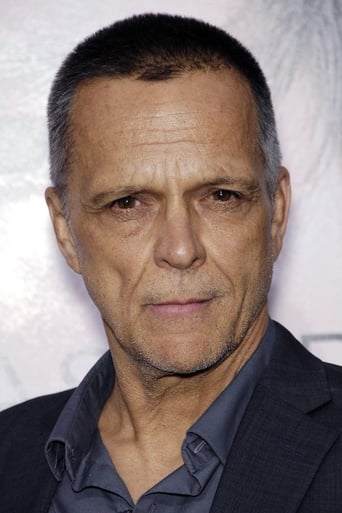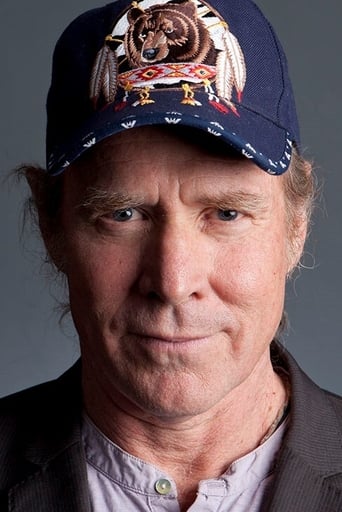TrueHello
Fun premise, good actors, bad writing. This film seemed to have potential at the beginning but it quickly devolves into a trite action film. Ultimately it's very boring.
Salubfoto
It's an amazing and heartbreaking story.
Cassandra
Story: It's very simple but honestly that is fine.
Fleur
Actress is magnificent and exudes a hypnotic screen presence in this affecting drama.
Joe F. Medina
If you thought Titanic was the best thing since slice bread, then this film is probably not to for you. This is not your typical popcorn movie fare. When you watch a Nicholas Roeg film, you are walking into a dark world populated with individuals with fractured psyches, desperate lives and dark motives. Everything from his distinct use of visual metaphors to his trademark dramatic camera zooms to his choice of eclectic, but darkly dramatic subject matter typifies Roeg's cinematic universe. His long trajectory as a filmmaker goes back to the early 60's where he began as a camera operator and eventually became one of the most visually unique cinematographers in the business. He made his debut as a director in 1970, co-directing with Donald Cammell, the controversial film Performance, starring James Fox and Mick Jagger in his feature film debut. From then on, straight up to Cold Heaven, Roeg has maintained his eclectic cinematic style of filmmaking working outside of the studio system. This film stars Roeg's then, wife, Theresa Russell as Maria, the confused, conflicted yet unfaithful wife of Alex, played by Mark Harmon in an eerily understated performance. There are also supporting roles by Talia Shire as the mysterious nun and James Russo as Maria's lover. If you like your films to be a bit challenging, if you have some appreciation for the visually abstract, if you are keen on dark psychological cinema with a unique perspective in the vein of David Lynch or David Cronenberg, then Cold Heaven may be up your alley.
fedor8
In Roeg's "Don't Look Now", non-believer Sutherland pays the price by getting chopped up, and in this movie former-believer-but-now-non-believer Russell is "shown the way" by God and has her faith in God restored. She "sees the light", so-to-speak. It's a safe bet that Roeg doesn't think much of atheists: "Convert 'em or kill 'em" must be his credo, and also the message in these two films."C.H." is mysterious and quite ambiguous for quite a while, but then, unfortunately, more and more of the mysteriousness makes place for hardcore religious nonsense and the standard Christian stuff regarding the Virgin Mary. The message of the film is crystal-clear: God intervenes in Russell's life by saving her marriage and restoring her faith. Whether this wonderful God also saved Harmon is less certain; after all, the all-powerful Lord decided to kill him in the first place, and so bringing him back to life isn't exactly something that you can call an act of saving. (If you break a man's bicycle on purpose and then repair it, don't expect him to say thanks.) I at first thought that Russell was only imagining Harmon to still be alive (having perhaps stolen the corpse herself or imagined it being stolen), but once Talia Shire (the nun) tells Patton (the priest) in a confession booth that she has been having religious dreams about Russell for a long time, it then became clear that Roeg was going for a strictly by-the-numbers religious message, and not an ambiguous one free for interpretation.Roeg is no intellectual. I assume that the chances are very slim indeed that Roeg ever did or will ever make a film in which a God-fearing believer becomes a non-believer. That much is certain.I liked the thing Patton said to Russell at one point, and its obvious implications: he told her that Satan doesn't have the power over life and death, but that only God has it. Translation/Conclusion: Satan cannot do real evil, only God can. Now what kind of a God are they all worshiping then? They should pray that Satan takes over the Heavens and somehow gets rid of this God, which would mean that God wouldn't have the power anymore to cause all the damage that he does – using this logic. But then we'd have over-population. It's a strange dilemma...Okay, so I am poking a bit of fun at the film's religious aspects and all the illogic and absurdity that they tag along with them, but the film is still solid. It would have been better had it not sought to hide like a coward in the religious corner, using tired old clichés like frantic nuns, philosophical priests, and that mighty thunder in the sky that seems to be an oft-employed method by God of relaying messages to his fearful flock.
Chris
Well, well....Roeg touched a bit of a nerve there, didn't he? He was a genius while he was cataloguing his various characters' descents into psychosis for a couple of decades, but as soon as he has the bad taste to suggest that redemption (or even some good advice) might be found in the bad old Catholic church, the hipper-than-thou alternative movie crowd gets extra vicious. Worse still, Theresa Russell's character - faced with experiences that nothing in her avowedly rationalist outlook has an explanation for, is unwillingly forced to deal with those experiences on another level - that of the spiritual. You know, the realm of the ignorant and superstitious, the sort of thing that the art-house cinephiles are supposed to be above. Oh, the horror... So she finds her marriage - the idea that it might be a uniquely important commitment - affirmed by what seems uncomfortably like divine intervention. People who find this idea prima facie offensive could maybe ask themselves why they instinctively jump into attack mode at being challenged to take seriously the idea of a spiritual dimension to their lives. But they probably won't. Sure, this film has some problems, notably Talia Shire's delirious hamwork as the overwrought nun, 1950s-style attire and all. And the dialogue between Marie Davenport and the young priest in their last scene is straight out of the Spellbound School of Glib Interpretations (though Hitchcock's movie escaped similar charges due to the source of wisdom having impeccably secular credentials as a Freudian psychoanalyst). But, sadly, Nicolas Roeg appears to have copped a critical mauling as much for even asking the question as for the possible answers this film presents.
gpeltz
This movie almost plays better in you mind, in retrospect. It tackles several complex themes, which it then twists and entwines. The results, while not always successfully resolved, none the less provide something rare today; Food for thought. Among other things, this film deals with, adultery, faith, and redemption. Beautifully filmed, we are introduced to a wife of a doctor, whose flirtations are actually killing her husband. The wife is a non believer, yet she somehow finds herself involved in something that she cannot explain. She is both a unwitting pawn, in a miraculous event, that tests the faith of a minister and a Nun, and challenges her to examine her own disillusion with her marriage and her husband. She comes to realize that her outside affair with a handsome young man, directly affects the health of her husband, (who comes back from the dead.!) she is confused. And then there are those visions of the virgin Mary....Not your usual shoot em up..... oddly paced, yet affecting.





